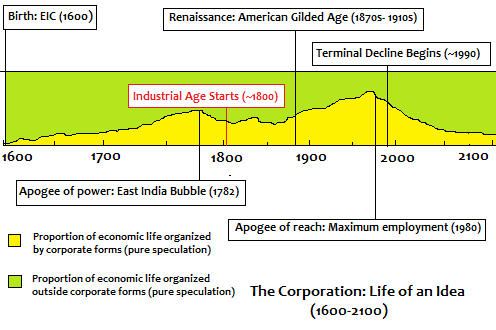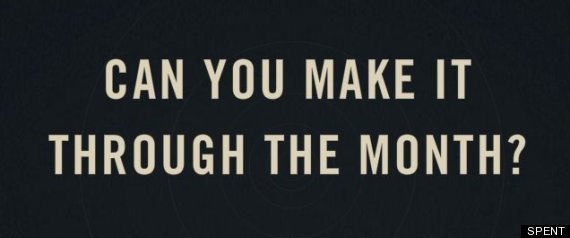I went down to Zuccotti Park yesterday. Certainly out of a political and intellectual interest, but also because we were talking about networks, organization and then capitalism and the economy, and the protests came up in my Intro class. I don’t know if I learned enough to say something meaningful, or dramatic, or particularly enlightened. But if this is coming up in your class, maybe you’ll find what I saw slightly interesting.

I was as interested in the people who were there, as I was about the people who were there who wanted to come down to see what was going on. There were taped off walkways, so that people–protesters and gawkers–could mill about the encampment. There was a lot of protest voyeurism. Police were polite and respectful. I saw a lot of people chatting with the cops, long-term encampers and passersby alike. There was a lot of what I expected: disaffected kids with tattoos on their faces, with homeless men mixed in; dozens and dozens of signs scrawled on pizza boxes; drum circles. Quite a few dogs which, along with the decision to put a tattoo on your face–is a marker of some sort of longer term commitment against mainstream society (I’d have to look that sort of thing up). But there was a lot that I was surprised at as well. There was a good amount of organization too.
As I walked around, I kept bumping into people with trash bags who were constantly monitoring the granite floor for debris, talking to people who were lying on the dozens of sleeping bags to see if they needed any water. There was a medical facility, whose workers had red taped crosses on their shoulders. There was an elaborate kitchen area, with volunteers furiously washing dishes in makeshift tubs with clean gloves. There was a media tent with a large TV and internet hookup. Whenever somebody wanted to talk, they had a forum to do so. Walking around the Western edge of the park, a man next to me yelled out “Mic Check!” and three people responded: “Mic Check!” He said it a second time, and ten people responded, and then he had gained the size audience he wanted, and began talking about how he wanted everyone to continue respecting the conditions of the park. I spoke with a young man who had traveled from Florida, wanting to be at the encampment to give voice to the people in his hometown.
I walked back north to an area that was called the General Assembly (I’m sure you’ve read about it in the news), and charismatic philosopher Slovoj Zizek was conducting a teach in. Because the protesters cannot use amplification system, the GA has an echoing format for discourse: The speaker will say something in short bursts, so that his/her words can be repeated out to people outside of the initial speaker’s earshot, twice. Zizek talked about capitalism, as you would expect: “They say that you are dreamers (They say that you are dreamers… They say that you are dreamers), The true dreamers are those who think (The true dreamers are those who think… The true dreamers are those who think), things can go on indefinitely the way that they are (things can go on indefinitely the way that they are)…” But he also issued a warning to the audience: “Don’t fall in love with yourselves… Carnivals come cheap.” See some of it here. There was a clear divide between the more rough-looking youth in the western part of the park who were camping out on cardboard and playing in the drum circle, and the lefty grad student crowd who had gathered to hear Zizek. I asked one kid what he thought of a world renowned philosopher coming to speak at the park, and if he was interested. He told me, he had “zero interest.” “People come, people go. Cameras come and go. I’ve never heard of him anyways.” You can perhaps notice the different crowd by my cellphone pictures…
 I walked back north to an area that was called the General Assembly (I’m sure you’ve read about it in the news), and charismatic philosopher Slovoj Zizek was conducting a teach in. Because the protesters cannot use amplification system, the GA has an echoing format for discourse: The speaker will say something in short bursts, so that his/her words can be repeated out to people outside of the initial speaker’s earshot, twice. Zizek talked about capitalism, as you would expect: “They say that you are dreamers (They say that you are dreamers… They say that you are dreamers), The true dreamers are those who think (The true dreamers are those who think… The true dreamers are those who think), things can go on indefinitely the way that they are (things can go on indefinitely the way that they are)…” But he also issued a warning to the audience: “Don’t fall in love with yourselves… Carnivals come cheap.” See some of it here. There was a clear divide between the more rough-looking youth in the western part of the park who were camping out on cardboard and playing in the drum circle, and the lefty grad student crowd who had gathered to hear Zizek. I asked one kid what he thought of a world renowned philosopher coming to speak at the park, and if he was interested. He told me, he had “zero interest.” “People come, people go. Cameras come and go. I’ve never heard of him anyways.” You can perhaps notice the different crowd by my cellphone pictures…
I walked back north to an area that was called the General Assembly (I’m sure you’ve read about it in the news), and charismatic philosopher Slovoj Zizek was conducting a teach in. Because the protesters cannot use amplification system, the GA has an echoing format for discourse: The speaker will say something in short bursts, so that his/her words can be repeated out to people outside of the initial speaker’s earshot, twice. Zizek talked about capitalism, as you would expect: “They say that you are dreamers (They say that you are dreamers… They say that you are dreamers), The true dreamers are those who think (The true dreamers are those who think… The true dreamers are those who think), things can go on indefinitely the way that they are (things can go on indefinitely the way that they are)…” But he also issued a warning to the audience: “Don’t fall in love with yourselves… Carnivals come cheap.” See some of it here. There was a clear divide between the more rough-looking youth in the western part of the park who were camping out on cardboard and playing in the drum circle, and the lefty grad student crowd who had gathered to hear Zizek. I asked one kid what he thought of a world renowned philosopher coming to speak at the park, and if he was interested. He told me, he had “zero interest.” “People come, people go. Cameras come and go. I’ve never heard of him anyways.” You can perhaps notice the different crowd by my cellphone pictures…
Oh, and it’s an amazing media circus. If you look at a person with a cameraman in tow, you’ll be asked for an interview. Across the street, a couple of sociology friends and I were talking about not wanting to speak to anyone, for fear of being edited into incoherence, being balanced by the responsibility to say something positive about the protests… Linking to something in Bourdieu’s On Television, wherein the strict anti-public intellectual wrote of the mistake of believing you know something about everything yet feeling compelled to say something. During the conversation a man from the BBC approached our group and asked for an interview to compare the OWS protest and the Tea Party. Zizek talked about that connection too.


